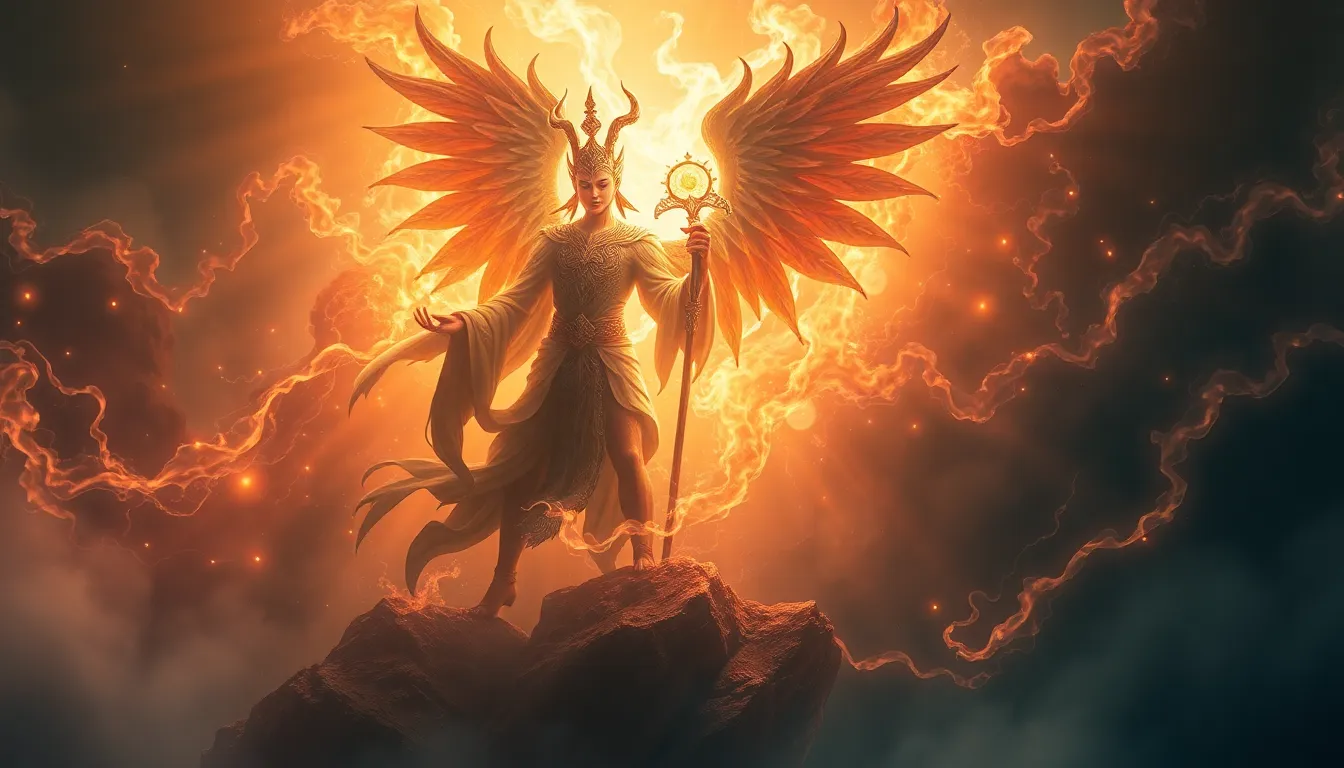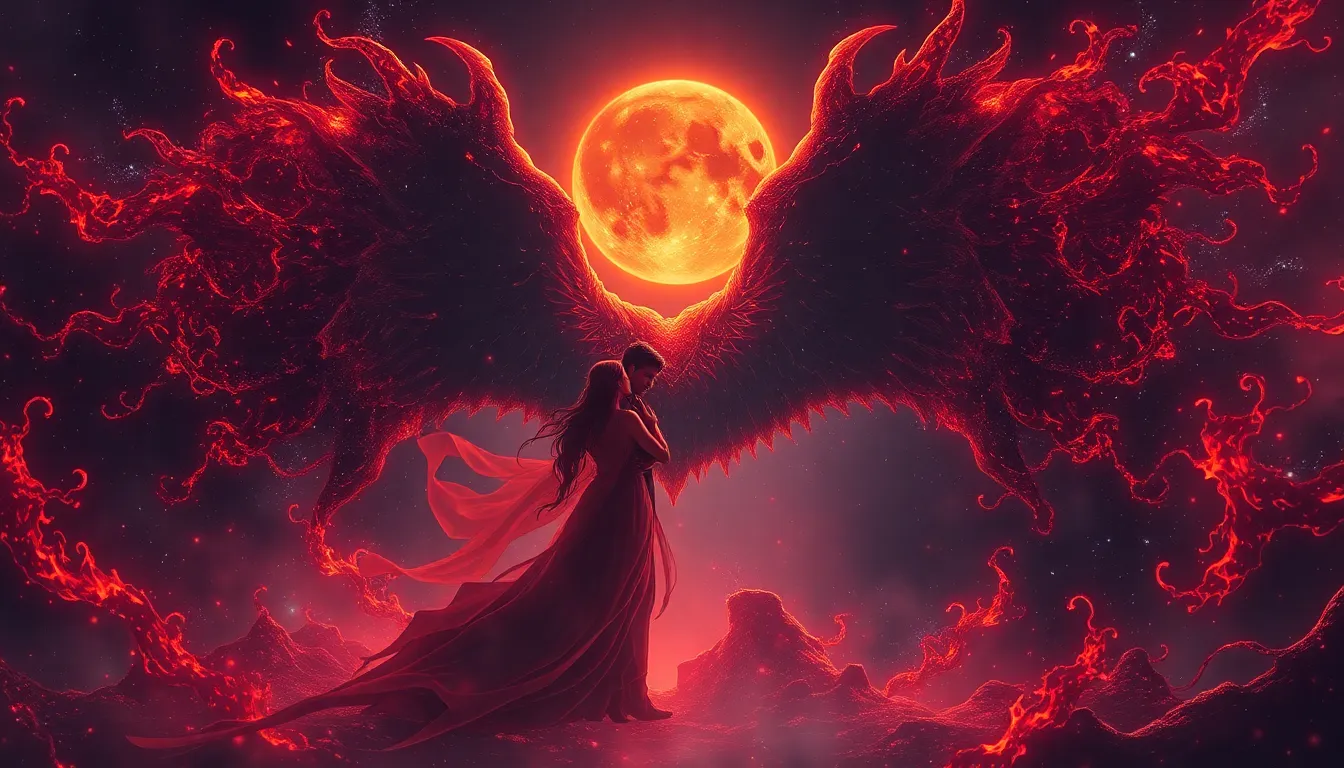The Enigmatic Powers of Ancient Deities: Myths of Magic
I. Introduction
Throughout history, ancient deities have played a significant role in the mythologies of various cultures. These divine figures are often endowed with extraordinary powers, influencing every aspect of life from creation to destruction. The intersection of magic and mythology reveals how ancient civilizations understood the world around them, attributing supernatural abilities to their gods and goddesses.
This article aims to explore the powers attributed to ancient deities, examining how magic was woven into the fabric of their stories and rituals. By delving into various cultural narratives, we can gain insights into the mystical beliefs that shaped human experience in antiquity.
II. The Concept of Divinity and Magic in Ancient Civilizations
Divinity is often defined as the quality of being divine, encompassing gods and goddesses who embody various aspects of life and the universe. These beings are frequently associated with magical practices, as their powers can manifest in ways that influence the natural world.
Historically, cultures such as Ancient Egypt, Greece, Mesopotamia, and various civilizations in the Americas held rich mythologies that intertwined magic with the divine. In these societies, magic was not merely a tool but an integral part of religious rituals and everyday life.
- In Egypt, magic was seen as a means to connect with the divine.
- In Greece, rituals and incantations were used to invoke the gods’ favor.
- Mesopotamian cultures practiced divination and sorcery within their religious contexts.
- Indigenous cultures in the Americas often employed shamanistic practices to communicate with the divine.
III. Egyptian Deities and Their Magical Abilities
In Ancient Egypt, deities were revered not only for their power but also for their magical abilities that could aid the living and the dead.
A. Isis: The goddess of magic and healing
Isis was one of the most important deities in the Egyptian pantheon, known for her mastery of magic and healing. She was often depicted with a throne-shaped crown and was believed to possess the knowledge of spells and incantations that could revive the dead and heal the sick.
B. Thoth: The god of wisdom and magic
Thoth, often represented as an ibis or a baboon, was the god of wisdom and writing. He was credited with the invention of hieroglyphics and was thought to possess magical abilities that allowed him to mediate between the gods and humanity. Thoth was also associated with the moon, enhancing his mystical attributes.
C. Osiris: The resurrection and fertility deity
Osiris, the god of the afterlife, was symbolically linked to resurrection and fertility. His story of death and rebirth was central to Egyptian beliefs about the afterlife. Osiris was often invoked in rituals aimed at ensuring the fertility of the land and the resurrection of the deceased.
IV. Greek Mythology: Gods and Their Enigmatic Powers
Greek mythology is rich with tales of gods and goddesses who wielded magical powers that could alter reality and influence human fate.
A. Hecate: The goddess of witchcraft and magic
Hecate was the goddess of magic, witchcraft, and the moon. She was often depicted holding torches and was associated with the night and the unknown. Hecate was revered for her ability to control supernatural forces and was often called upon for protection or guidance in magical practices.
B. Hermes: The messenger god and his magical attributes
Hermes, known as the messenger of the gods, also had magical attributes. He was the god of travel, trade, and communication, and was often depicted with his caduceus, a staff that could bring peace and resolve conflicts. Hermes was believed to possess the ability to traverse the boundaries between the mortal and divine realms.
C. Dionysus: The god of wine, ecstasy, and transformation
Dionysus, the god of wine and revelry, represented the primal forces of nature and transformation. His myths often involve themes of ecstatic celebration and transcendence, reflecting the dual nature of magic as both creative and destructive. Dionysian rituals often blurred the lines between reality and the magical.
V. Mesopotamian Mythology: Enuma Elish and Divine Sorcery
Mesopotamian mythology offers a fascinating exploration of divine sorcery through its creation myths and epic tales.
A. Tiamat and the creation of chaos
Tiamat, a primordial goddess, personified chaos and was depicted as a dragon or serpent. Her battle against the younger gods represented the struggle between chaos and order, with magic playing a crucial role in the creation of the world.
B. Marduk: The hero-god and his magical combat
Marduk, the hero-god, emerged victorious against Tiamat and is celebrated for his magical prowess. He wielded powerful spells and weapons, showcasing the significance of magic in establishing cosmic order. Marduk’s victory led to the creation of humanity and the world as known in Mesopotamian belief.
C. The significance of incantations and rituals in Mesopotamian culture
In Mesopotamia, incantations were essential in various rituals aimed at invoking divine favor or protection. Priests and priestesses performed these rituals, believing that the correct words and actions could harness the power of the gods.
VI. The Deities of the Americas: Shamanism and Divine Intervention
In the mythologies of the Americas, deities often interacted with humans through shamanistic practices, emphasizing a reciprocal relationship with the divine.
A. Quetzalcoatl: The feathered serpent and the magic of creation
Quetzalcoatl, the feathered serpent, was a central figure in Mesoamerican mythology, representing wind, air, and learning. He was believed to have brought knowledge and agriculture to humanity, embodying the magic of creation and transformation.
B. Pachamama: The earth goddess and her nurturing powers
Pachamama, the earth goddess revered by indigenous cultures in South America, symbolizes fertility and the nurturing aspects of nature. Her influence is felt in agricultural practices and rituals aimed at ensuring a bountiful harvest.
C. The role of shamans as intermediaries with the divine
Shamans acted as intermediaries between the human and spiritual worlds, using rituals, songs, and plant medicines to connect with deities and spirits. This practice highlights the importance of magic in understanding and influencing the natural and supernatural realms.
VII. The Influence of Ancient Deities on Modern Magic
The legacy of ancient deities continues to resonate in contemporary spirituality and magical practices.
A. Continuation of ancient practices in contemporary spirituality
Many modern spiritual practices draw inspiration from ancient rituals and beliefs, incorporating the magic of these deities into contemporary life. This includes the use of spells, invocations, and the honoring of ancient gods.
B. The revival of ancient deities in modern magical practices
As interest in ancient cultures grows, so does the revival of ancient deities within modern magical practices. Practitioners often seek to reconnect with the wisdom and power of these figures through rituals and spiritual work.
C. The impact of mythology on popular culture and fantasy literature
Ancient deities have significantly influenced popular culture, appearing in literature, films, and art. Their stories of magic and power inspire a myriad of fantasy narratives, allowing new generations to engage with these ancient myths.
VIII. Comparative Analysis: Similarities and Differences Across Cultures
Examining the powers of ancient deities reveals both shared themes and unique attributes across cultures.
A. Shared themes of magic among various cultures’ deities
Across different mythologies, common themes emerge, such as:
- The association of deities with natural elements (water, earth, fire).
- The use of magic for healing and protection.
- The duality of creation and destruction embodied by certain gods.
B. Unique attributes and powers of deities in different mythologies
While many deities share similar powers, each culture imbues their gods with unique attributes that reflect their values and beliefs. For example, the agricultural focus of Pachamama contrasts with the chaotic nature of Tiamat.
C. The role of cultural context in shaping perceptions of magic
The cultural context significantly shapes how deities and their magical powers are perceived




